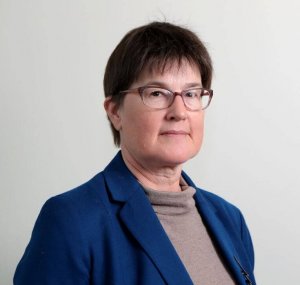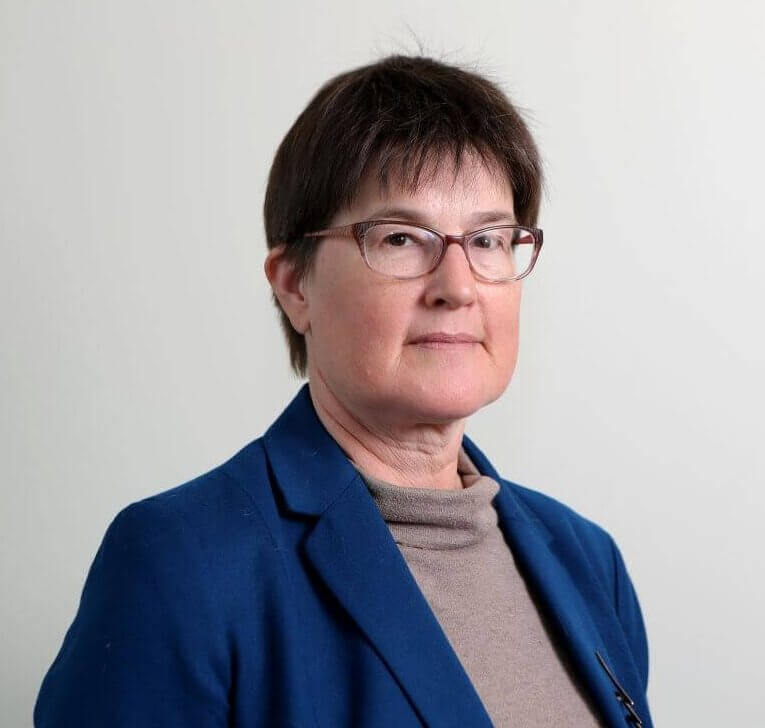 Catherine N. Duckett, Ph.D., associate dean of the School of Science, delivered a talk titled “Climate Change is Only an Emergency if You are Alive” hosted by the Red Bank Humanists on Sunday, April 14.
Catherine N. Duckett, Ph.D., associate dean of the School of Science, delivered a talk titled “Climate Change is Only an Emergency if You are Alive” hosted by the Red Bank Humanists on Sunday, April 14.
Duckett argued that climate change is an emergency for living things for a variety of reasons including direct and indirect impacts of heat, extreme weather, heavy rainfall, and other ecosystem impacts that are a threat to stable and predictable provisioning and supporting services from systems that we rely on for social and economic stability.
“Human societies and economies depend on ecosystem services provided for free by the natural world,” said Duckett. “For example, tree roots and the microbes in soil help filter rainwater so that it is healthy for humans and fish; plankton and trees make oxygen that we and other terrestrial creatures need to breathe; and birds eat ticks and mosquitos that carry disease and suck nutrients from our livestock.”
She also spoke about how individuals have an obligation to do what they can to reduce climate impacts, including raising awareness of the problem as well as personal and political actions directed towards reducing greenhouse gas emissions and social adaptations to climate change.
“According to research, people rarely talk about climate change and yet there is broad agreement in U.S. society that one of the solutions, clean energy, should be supported,” said Duckett. “This implies that discussion of solutions might help us arrive at mutually acceptable solutions.”
Duckett considers climate change to be the biggest evolutionary challenge the world will see in any human lifetime. Her current teaching and scholarly work are in the fields of climate change and climate change communication, with an emphasis on understanding the biological and evolutionary impacts of climate change. Duckett received her bachelor’s degree from Brown University, her master’s from the University of Texas at Austin, and her Ph.D. from Cornell University. She trained as an evolutionary entomologist studying the evolutionary relationships among plant eating beetles at the University of Puerto Rico, Rutgers, and the Smithsonian Institution.
The Red Bank Humanists is a nonprofit organization dedicated to secular humanism. The Red Bank Humanists cultivate rational inquiry, ethical values, and human development in Monmouth and Ocean Counties. For more information visit www.redbankhumanists.org.

